Module 3 My First Ride on a Train Reading and vocabulary
文档属性
| 名称 | Module 3 My First Ride on a Train Reading and vocabulary |
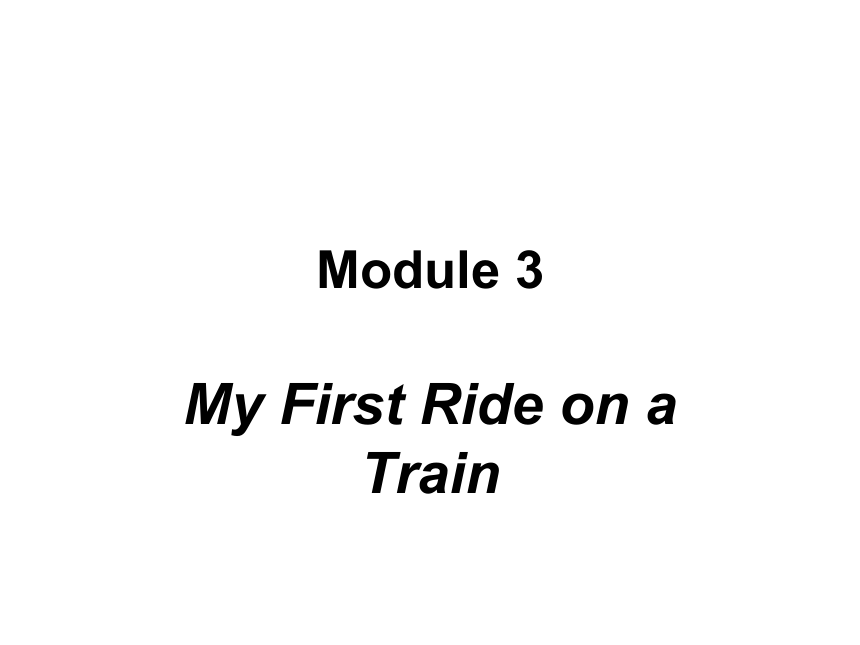
|
|
| 格式 | rar | ||
| 文件大小 | 5.3MB | ||
| 资源类型 | 教案 | ||
| 版本资源 | 外研版 | ||
| 科目 | 英语 | ||
| 更新时间 | 2011-10-13 00:00:00 | ||
图片预览

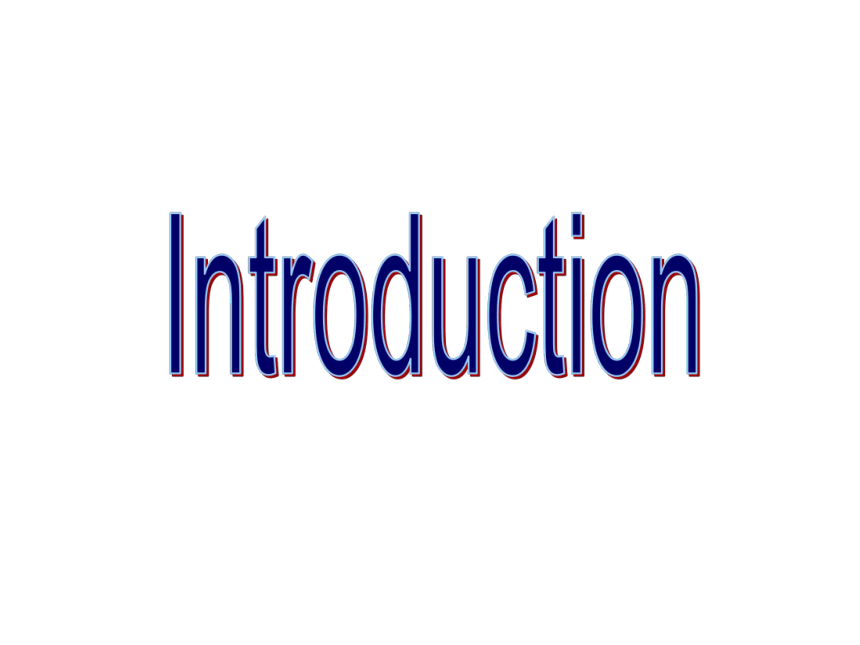
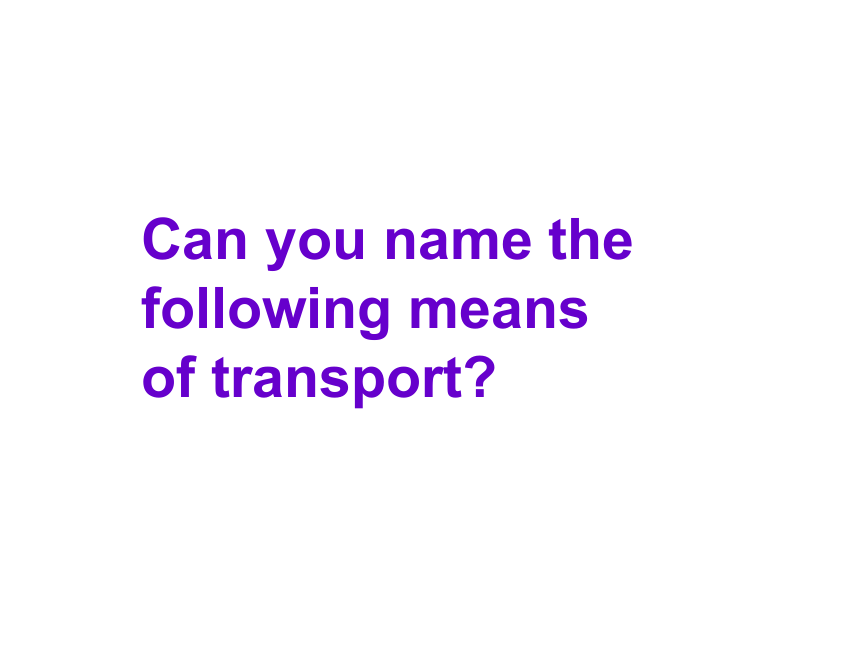
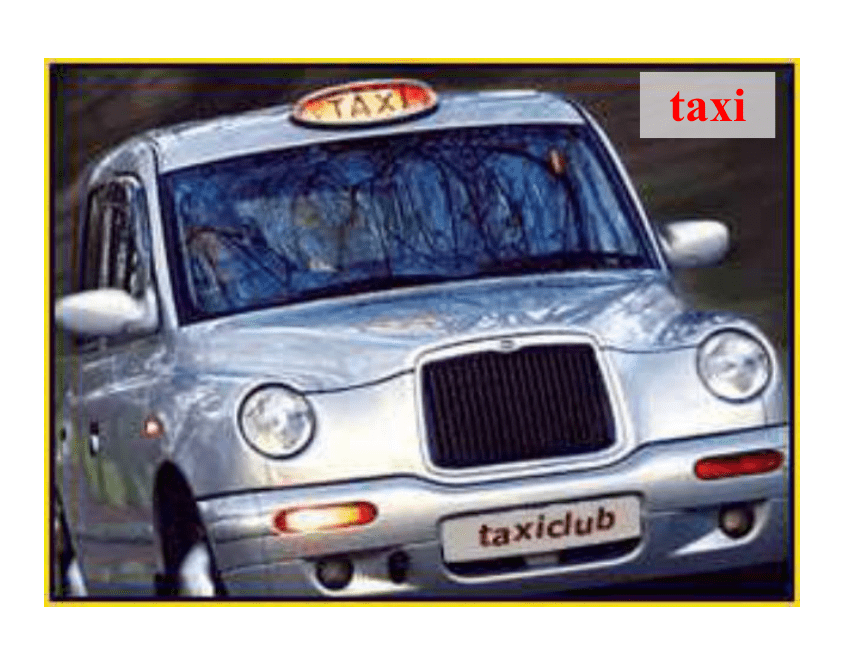
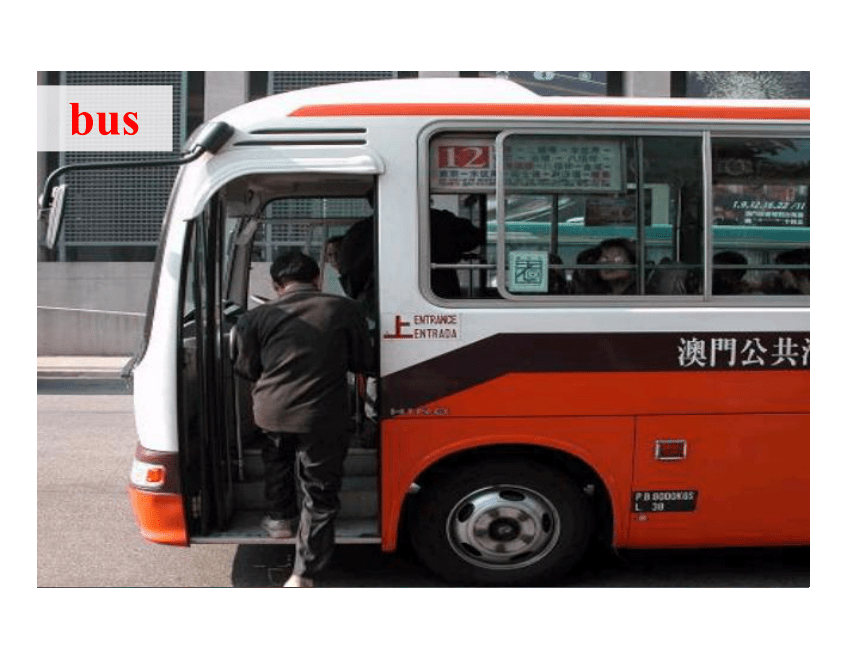
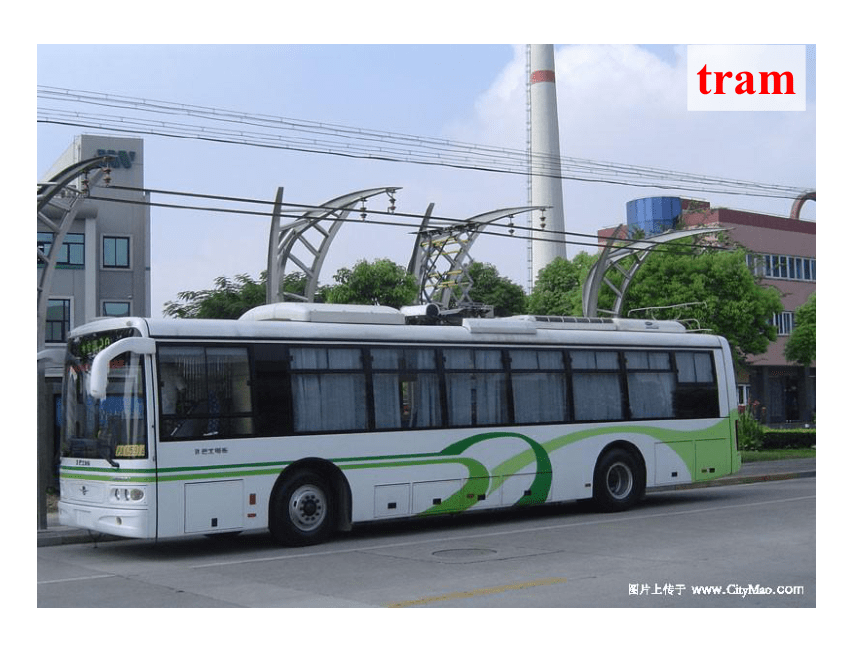
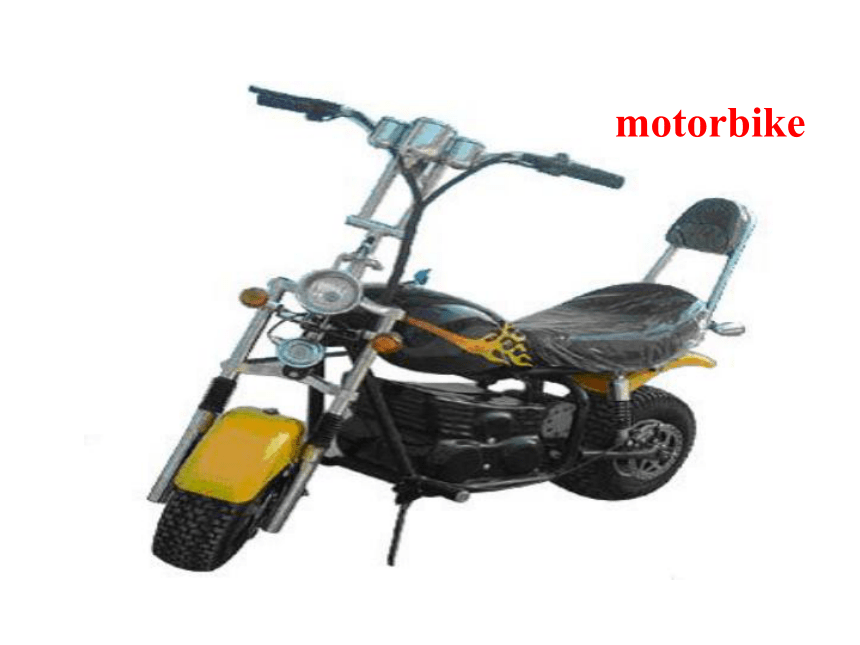
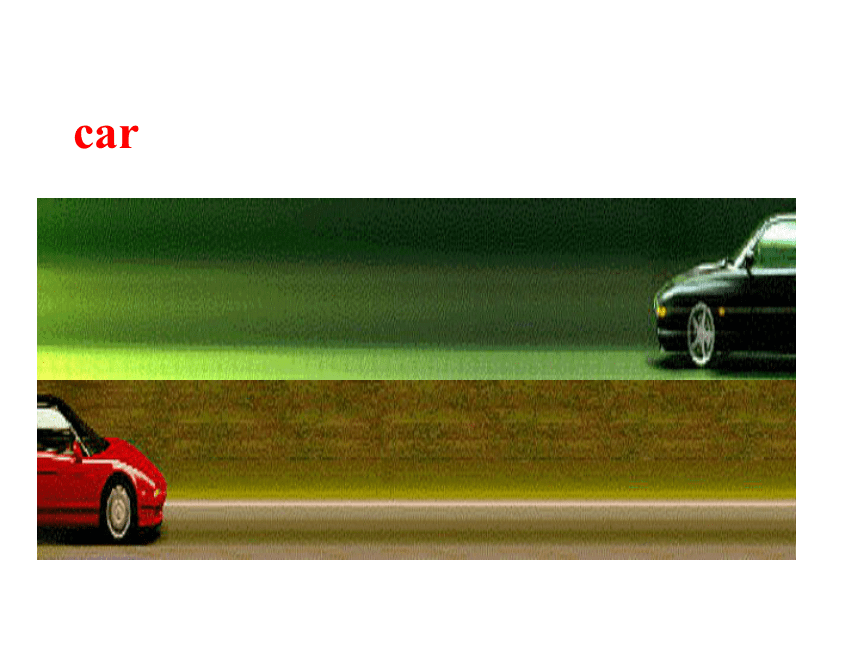
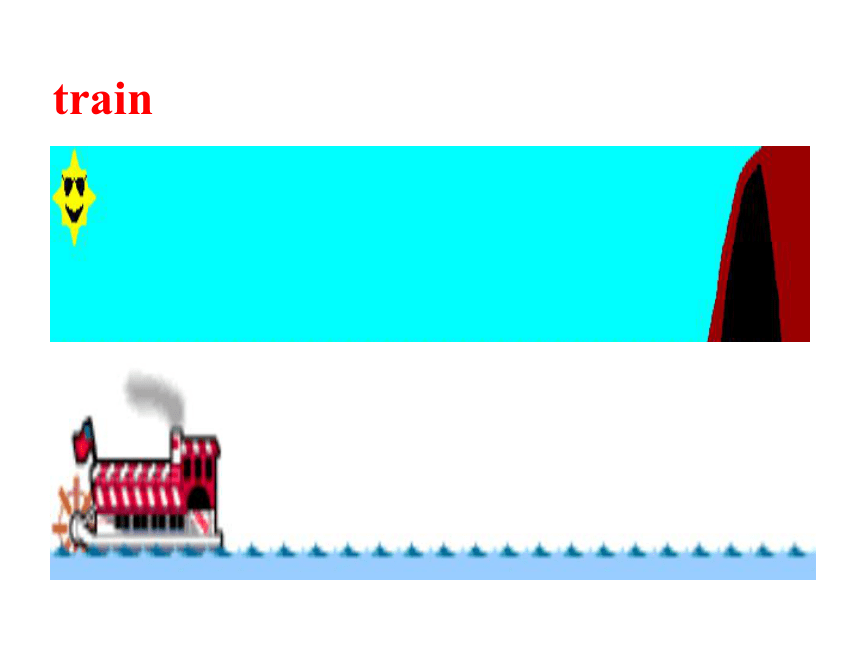
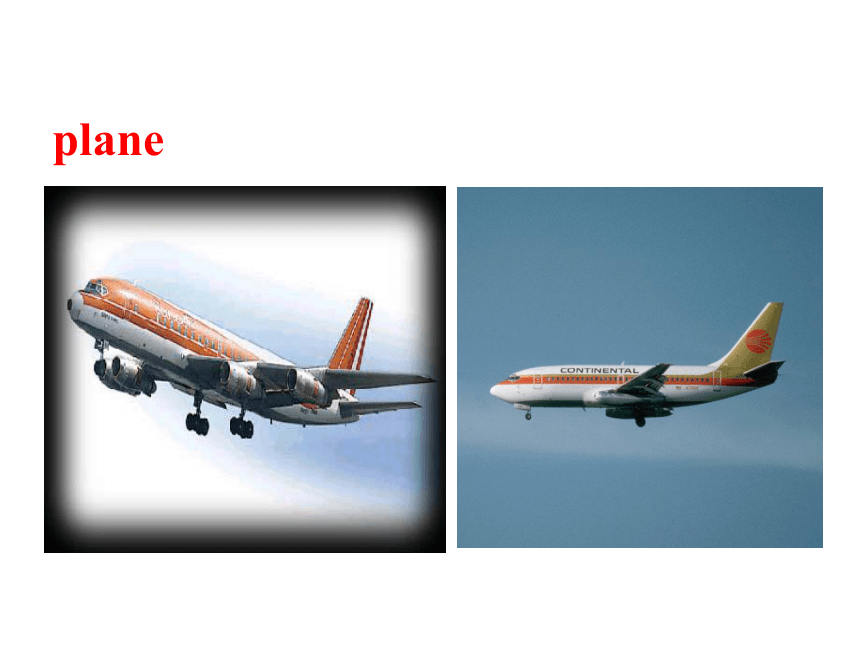
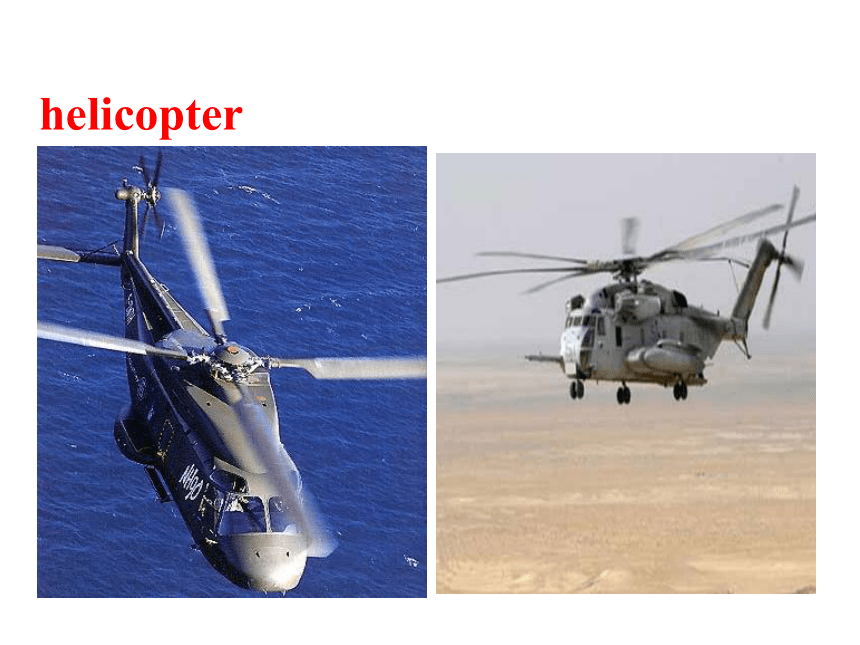
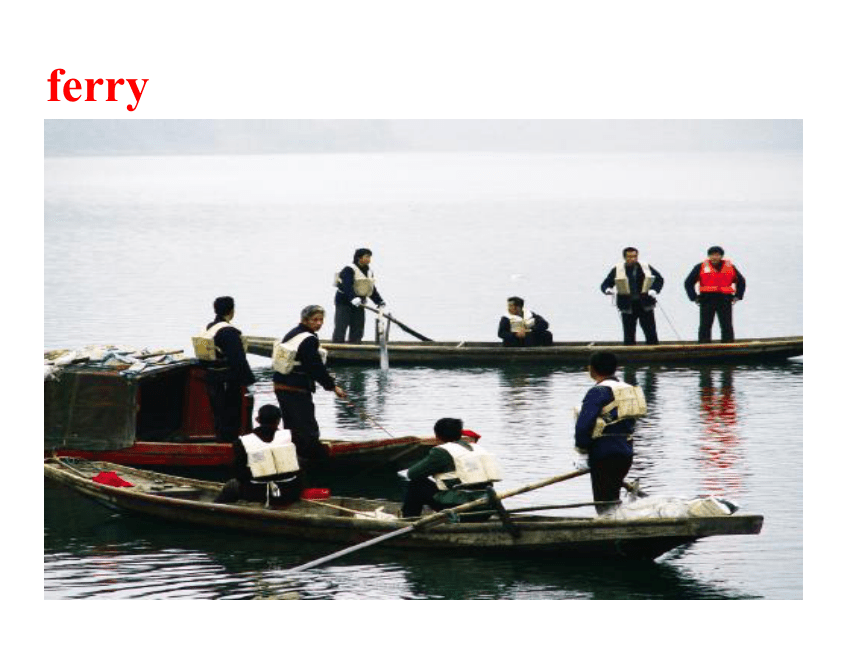
文档简介
(共69张PPT)
Module 3
My First Ride on a Train
Can you name the following means of transport
taxi
bus
tram
motorbike
car
train
plane
helicopter
ferry
ship
INTRODUCTION Vocabulary and speaking
bicycle
bus
motorbike
tram
plane
ferry
taxi
helicopter
bicycle bus
ferry helicopter
motorbike plane
taxi train tram
Match the words in the box with the pictures.
1
train
1
2
3
4
5
6
7
8
9
渡船
2
Answer the questions.
1 Which of the vehicles in activity 1 travel on roads
Taxis, bicycles, motorbikes and buses travel on roads.
2 Which of them travel on rails
Trams and trains travel on rails.
3 Which of them travel on water
Ferries travel on water.
载运工具;陆上交通工具
铁轨
4 Which of them travel in the air
5 Which of them can you use to travel a long distance
Helicopters and planes travel in the air.
You can use a plane or a train to travel a long distance.
距离
3
Module
My First Ride on a Train
Reading and vocabulary
by air
by sea
How can you go to Australia
5. What Australian animals do you know about
1. Do you know how many people live there
2. Do you know the name of the capital city
3. Where do you think most of the people live, in the central part of the country or on the coast
4. What do you think the central part of the country is like
Australia
More than 20 million
Canberra
On the east coast and the southeast coast
Desert
Kangaroo
koala bear
duck-billed platypus
dingo
袋鼠 树熊 扁嘴兽 澳洲野狗 负鼠
Kangaroo
koala bear
duck-billed
dingo
possum…etc
Scenery of Australia
The national flag of Australia
National bird——琴鸟
National medal
National flower——合金欢
the Map of Australia
Olympic Stadium
People
Population: 19,169,083 (July 2000 est.)
Capital: Canberra
the City Of Sydney
Sydney Opera House
Great barrier reef
Lucky Bay
Alice Spring
desert
Sydney University
Kangaroo
duck-billed Platypus
Koala bear
abandoned camels cassette clouds colourful desert diamonds distance experts famous farms fields food government law meal midnight passengers products recently sand scenery shine shoot soil supply weather
Check the meaning of these words and match some of the words with these definitions.
1. an area of land where it is always dry
2. valuable stones
3. people who travel on a train, bus or plane
4. you find this on beaches
5. white or grey things made of water in the sky
6. where plants grow
desert
diamonds
passengers
sand
clouds
soil/fields /farms
a child visiting her grandmother
What is the passage about
a train ride to Sydney
taking the train to Australia
traveling to the central part of Australia
How many parts can we divide the passage into What is each about
Fast reading
Match the paragraphs and their main ideas.
Para 1:
Para 2:
Para 3:
Para 4:
Para 5:
Para 6:
I had my first ride on a long distance train
The scenery along the railway
How I spent the time in the train
Why is the train called Ghan
Things about the camels
The fate of the camels nowadays
Paragraph 6
Paragraph 1
Paragraph 2
Paragraph 3
Paragraph 4
Paragraph 5
She tells
She describes
She explains
A. the origin of the Ghan train and the means of transport for traveling a long distance in the past .
B. when and where their travel took place.
the scenery of the journey.
Careful reading: answer the following questions.
1. Did Alice travel on the train a long time ago
2. Was her destination on the coast of Australia
3. Was the scenery the same during the whole journey
4. Did she study while she was on the train
Did the Australians use horses to travel to the central part of the country
Do they still use camels to deliver goods
No. She travelled on the train recently.
No, it was Alice Springs in the centre of Australia.
No, at first there were fields, then it was desert.
Yes, she studied Chinese.
Yes, at first, but the horses didn’t like the hot weather.
No, they use the train now.
Reading – 6 Post reading –3 Choose the
best answers
The writer thinks highly of all
But _____ during his trip.
A. food
B. the service on the train
C. the scenery
D. the people
B
2. Which of the following is true
Australians traveled to Afghanistan a lot in the
19th century.
B. The police shot the camels with the permission
of the government.
C. The Afghanistan government passed a law to
shoot trained animals.
D. The writer used to travel long distances on
trains alone.
B
3. Australians used to travel on camels for _______.
A. business B. tour
C. farming D. animal training
4. In general, the writer ______.
A. showed no interest in his trip by train
B. thinks his ride was interesting but too long
C. enjoyed his ride on the train
D. disliked the way the camels were treated
in Australia
A
C
5. The writer talked a lot about camels
in his writing, because______
A. Camels played an important part in
his traveling
B. He was planning to travel on a camel
C. Readers are often interested in animals
D. The writer wanted to explain why the
train was called Ghan
D
My First Ride on a Train
Language Points
1. Where do you think most of the people
live, in the central part of the country
or on the coast
特殊疑问词 + do you think + 陈述句结构
(1) 不能用yes或no来回答这样的特殊疑
问句,应用完整的句子来回答。
I think most of the people live on the coast. (2) 位于句首的特殊疑问词如果不是该句的
主语,一定要注意该句的语序。
Where do you think they should go
(Where不是该句主语)
Who do you think is right (Who是该句主语)
(3) 适用于以上插入语的常用动词还有think, believe, suppose, imagine, guess, say, consider, suggest等。
When do you suppose he’ll be back
How many books do you guess there are in our school library
What do you imagine he was like ten years ago
Who do you think he is talking to
Translate the following sentences into Chinese.
How old do you think he is
What do you guess our English teacher is doing
1.你认为他多大了
2.你猜我们英语老师在干什么
Who do you think is playing football
3.你认为谁在踢足球
Choose the best answer:
1. I haven’t heard from Henry for a long
time. What do you suppose ____ to him
A. was happening B. to happen
C. has happened D. had happened
2. ___ be sent to work there (02SH)
A. Who do you suggest
B. Who do you suggest that should
C. Do you suggest who should
D. Do you suggest whom should
2.more than
1) more than + 数词:(= over) 超过;多于
I have known David for more than 20 years.
2) more than + 名词:(=not only)不仅仅
Mr Brown is more than a teacher. He is also a close friend to us students.
3) more than +形容词或副词:(=very)很;非常
He is more than kind to us.
4)more than+含“can”的分句:表示“否定意义”。
That’s more than I can stand.
5) more than +比较对象:比……更……
This costs more than that.
6) more…than……连接两个相同的句子成分:与其说……还不如说……
He is more hardworking than intelligent.
7) no more than=only:仅仅(强调少)
not more than = at most:最多不超过;不到
He is no more than ten years old.
He is not more than ten years old.
3. 距离+away:离说话地点有……远
时间+away:离说话时还有……(多长时间)
eg. Christmas is two weeks away.
My house is two kilometers away.
4. We ate great meals cooked by experts.
1) expert (n)专家 (adj.) 擅长的
be expert at/in doing sth. 擅长做……
an expert on / in / at sth.某方面的专家
Bill Gates is an expert in / on / at computers.
My father is expert in / at painting.
5. The first few hundred kilometers of the journey, the scenery was very wonderful.
(1)few前有序数词、定冠词、指示代词、物主代词以及every(每隔)修饰时表示肯定意思,这时不能在前面加a。
前面几行
这几个学生
他的几个朋友
每隔几天
the first few lines
these few students
his few friends
every few days
6. journey, trip, travel, tour的区别:
journey:侧重指陆地上的远程旅行或旅程,常与时间、距离等连用,不一定会回到出发地。trip侧重指来往有定的短距离旅行。travel泛指旅行,多指国外旅行,常用复数,表示旅行的路途远、时间长。tour指途中在许多地方做短暂停留的观光游览。
make / go on a journey / trip / tour
去旅行或游览
Have a good journey / trip!祝你旅途愉快!
1)Our American friends are making a _____ of Shanghai.
2)Grand Canyon is a day’s _________by car from here.
3)He gave a talk to the students on his ______ in Europe.
4) At first I was afraid the long ________ would be too much for her.
5) I go to work by train and the ___________ takes 40 minutes.
tour
journey
travels
journey
trip / journey
7.scenery, scene, view, sight的区别:
scenery [u] n. 指某地区总的自然景观,不指特别的风景。scene [c] n. 指展现在眼前的景象,是scenery的一部分;另外还可指事故现场、舞台布景、影视场面。view 【c】 n. 特指从某一角度,特别是从远处或高处看到的景象。sight (常用复数) 指值得看的东西,某地的特有名胜;另外还有“视力、视线”之意。
1)Guilin is famous for its beautiful ________.
2) This play is divided into three acts, and each act has three _________.
3) I can get a fine ______ of the city from my house.
4) I saw most of the _______ of Beijing this June.
5) The old man running after the dog made a very amusing _______.
scenery
scenes
view
sights
scene
8. After that, it was desert.
desert: (n) 沙漠 (v) 遗弃
the Sahara Desert
他遗弃了他的妻儿。
He deserted his wife and children.
deserted (adj.) 相当于abandoned 被遗弃的
被遗弃的街道 a deserted/ an abandoned street
撒哈拉沙漠
9. The Afghans and their camels did this
until the 1920s/1920’s. (20世纪20年代)
在…世纪…年代(必须加the)
in the 2000s/2000’s 在21世纪
in the 1960s/1960’s 在20世纪60年代
in the 1850s/1850’s 在19世纪50年代
in 2010 在2010年(不能加the)
在某人十几/二十几/三十几……九十几岁
in one’s teens/twenties/thirties…nineties
It is not rare in ___ that people in___ sixties are going to university for
further education. (99SH)
90s; the B. the 90’s; /
C. 90’s; their D. the 90s; their
10. Then the government built a new
railway line, so they didn’t need the
camels any more.(不再…)
1)no more = not …any more表示动作不再重复出现,与瞬间动词连用
2)no longer = not …any longer表示动作不再延续,必须和表示延续的动词连用。
Ever since then, such accident has no more appeared. They will not talk with each other any longer.
—Excuse me, is this Mr. Brown’s office
—I’m sorry, but he ____ work here ____. He left about 3 weeks ago.
A. doesn’t, now B. didn’t, no more
C. doesn’t, any more D. doesn’t, any longer
Module 3
My First Ride on a Train
Can you name the following means of transport
taxi
bus
tram
motorbike
car
train
plane
helicopter
ferry
ship
INTRODUCTION Vocabulary and speaking
bicycle
bus
motorbike
tram
plane
ferry
taxi
helicopter
bicycle bus
ferry helicopter
motorbike plane
taxi train tram
Match the words in the box with the pictures.
1
train
1
2
3
4
5
6
7
8
9
渡船
2
Answer the questions.
1 Which of the vehicles in activity 1 travel on roads
Taxis, bicycles, motorbikes and buses travel on roads.
2 Which of them travel on rails
Trams and trains travel on rails.
3 Which of them travel on water
Ferries travel on water.
载运工具;陆上交通工具
铁轨
4 Which of them travel in the air
5 Which of them can you use to travel a long distance
Helicopters and planes travel in the air.
You can use a plane or a train to travel a long distance.
距离
3
Module
My First Ride on a Train
Reading and vocabulary
by air
by sea
How can you go to Australia
5. What Australian animals do you know about
1. Do you know how many people live there
2. Do you know the name of the capital city
3. Where do you think most of the people live, in the central part of the country or on the coast
4. What do you think the central part of the country is like
Australia
More than 20 million
Canberra
On the east coast and the southeast coast
Desert
Kangaroo
koala bear
duck-billed platypus
dingo
袋鼠 树熊 扁嘴兽 澳洲野狗 负鼠
Kangaroo
koala bear
duck-billed
dingo
possum…etc
Scenery of Australia
The national flag of Australia
National bird——琴鸟
National medal
National flower——合金欢
the Map of Australia
Olympic Stadium
People
Population: 19,169,083 (July 2000 est.)
Capital: Canberra
the City Of Sydney
Sydney Opera House
Great barrier reef
Lucky Bay
Alice Spring
desert
Sydney University
Kangaroo
duck-billed Platypus
Koala bear
abandoned camels cassette clouds colourful desert diamonds distance experts famous farms fields food government law meal midnight passengers products recently sand scenery shine shoot soil supply weather
Check the meaning of these words and match some of the words with these definitions.
1. an area of land where it is always dry
2. valuable stones
3. people who travel on a train, bus or plane
4. you find this on beaches
5. white or grey things made of water in the sky
6. where plants grow
desert
diamonds
passengers
sand
clouds
soil/fields /farms
a child visiting her grandmother
What is the passage about
a train ride to Sydney
taking the train to Australia
traveling to the central part of Australia
How many parts can we divide the passage into What is each about
Fast reading
Match the paragraphs and their main ideas.
Para 1:
Para 2:
Para 3:
Para 4:
Para 5:
Para 6:
I had my first ride on a long distance train
The scenery along the railway
How I spent the time in the train
Why is the train called Ghan
Things about the camels
The fate of the camels nowadays
Paragraph 6
Paragraph 1
Paragraph 2
Paragraph 3
Paragraph 4
Paragraph 5
She tells
She describes
She explains
A. the origin of the Ghan train and the means of transport for traveling a long distance in the past .
B. when and where their travel took place.
the scenery of the journey.
Careful reading: answer the following questions.
1. Did Alice travel on the train a long time ago
2. Was her destination on the coast of Australia
3. Was the scenery the same during the whole journey
4. Did she study while she was on the train
Did the Australians use horses to travel to the central part of the country
Do they still use camels to deliver goods
No. She travelled on the train recently.
No, it was Alice Springs in the centre of Australia.
No, at first there were fields, then it was desert.
Yes, she studied Chinese.
Yes, at first, but the horses didn’t like the hot weather.
No, they use the train now.
Reading – 6 Post reading –3 Choose the
best answers
The writer thinks highly of all
But _____ during his trip.
A. food
B. the service on the train
C. the scenery
D. the people
B
2. Which of the following is true
Australians traveled to Afghanistan a lot in the
19th century.
B. The police shot the camels with the permission
of the government.
C. The Afghanistan government passed a law to
shoot trained animals.
D. The writer used to travel long distances on
trains alone.
B
3. Australians used to travel on camels for _______.
A. business B. tour
C. farming D. animal training
4. In general, the writer ______.
A. showed no interest in his trip by train
B. thinks his ride was interesting but too long
C. enjoyed his ride on the train
D. disliked the way the camels were treated
in Australia
A
C
5. The writer talked a lot about camels
in his writing, because______
A. Camels played an important part in
his traveling
B. He was planning to travel on a camel
C. Readers are often interested in animals
D. The writer wanted to explain why the
train was called Ghan
D
My First Ride on a Train
Language Points
1. Where do you think most of the people
live, in the central part of the country
or on the coast
特殊疑问词 + do you think + 陈述句结构
(1) 不能用yes或no来回答这样的特殊疑
问句,应用完整的句子来回答。
I think most of the people live on the coast. (2) 位于句首的特殊疑问词如果不是该句的
主语,一定要注意该句的语序。
Where do you think they should go
(Where不是该句主语)
Who do you think is right (Who是该句主语)
(3) 适用于以上插入语的常用动词还有think, believe, suppose, imagine, guess, say, consider, suggest等。
When do you suppose he’ll be back
How many books do you guess there are in our school library
What do you imagine he was like ten years ago
Who do you think he is talking to
Translate the following sentences into Chinese.
How old do you think he is
What do you guess our English teacher is doing
1.你认为他多大了
2.你猜我们英语老师在干什么
Who do you think is playing football
3.你认为谁在踢足球
Choose the best answer:
1. I haven’t heard from Henry for a long
time. What do you suppose ____ to him
A. was happening B. to happen
C. has happened D. had happened
2. ___ be sent to work there (02SH)
A. Who do you suggest
B. Who do you suggest that should
C. Do you suggest who should
D. Do you suggest whom should
2.more than
1) more than + 数词:(= over) 超过;多于
I have known David for more than 20 years.
2) more than + 名词:(=not only)不仅仅
Mr Brown is more than a teacher. He is also a close friend to us students.
3) more than +形容词或副词:(=very)很;非常
He is more than kind to us.
4)more than+含“can”的分句:表示“否定意义”。
That’s more than I can stand.
5) more than +比较对象:比……更……
This costs more than that.
6) more…than……连接两个相同的句子成分:与其说……还不如说……
He is more hardworking than intelligent.
7) no more than=only:仅仅(强调少)
not more than = at most:最多不超过;不到
He is no more than ten years old.
He is not more than ten years old.
3. 距离+away:离说话地点有……远
时间+away:离说话时还有……(多长时间)
eg. Christmas is two weeks away.
My house is two kilometers away.
4. We ate great meals cooked by experts.
1) expert (n)专家 (adj.) 擅长的
be expert at/in doing sth. 擅长做……
an expert on / in / at sth.某方面的专家
Bill Gates is an expert in / on / at computers.
My father is expert in / at painting.
5. The first few hundred kilometers of the journey, the scenery was very wonderful.
(1)few前有序数词、定冠词、指示代词、物主代词以及every(每隔)修饰时表示肯定意思,这时不能在前面加a。
前面几行
这几个学生
他的几个朋友
每隔几天
the first few lines
these few students
his few friends
every few days
6. journey, trip, travel, tour的区别:
journey:侧重指陆地上的远程旅行或旅程,常与时间、距离等连用,不一定会回到出发地。trip侧重指来往有定的短距离旅行。travel泛指旅行,多指国外旅行,常用复数,表示旅行的路途远、时间长。tour指途中在许多地方做短暂停留的观光游览。
make / go on a journey / trip / tour
去旅行或游览
Have a good journey / trip!祝你旅途愉快!
1)Our American friends are making a _____ of Shanghai.
2)Grand Canyon is a day’s _________by car from here.
3)He gave a talk to the students on his ______ in Europe.
4) At first I was afraid the long ________ would be too much for her.
5) I go to work by train and the ___________ takes 40 minutes.
tour
journey
travels
journey
trip / journey
7.scenery, scene, view, sight的区别:
scenery [u] n. 指某地区总的自然景观,不指特别的风景。scene [c] n. 指展现在眼前的景象,是scenery的一部分;另外还可指事故现场、舞台布景、影视场面。view 【c】 n. 特指从某一角度,特别是从远处或高处看到的景象。sight (常用复数) 指值得看的东西,某地的特有名胜;另外还有“视力、视线”之意。
1)Guilin is famous for its beautiful ________.
2) This play is divided into three acts, and each act has three _________.
3) I can get a fine ______ of the city from my house.
4) I saw most of the _______ of Beijing this June.
5) The old man running after the dog made a very amusing _______.
scenery
scenes
view
sights
scene
8. After that, it was desert.
desert: (n) 沙漠 (v) 遗弃
the Sahara Desert
他遗弃了他的妻儿。
He deserted his wife and children.
deserted (adj.) 相当于abandoned 被遗弃的
被遗弃的街道 a deserted/ an abandoned street
撒哈拉沙漠
9. The Afghans and their camels did this
until the 1920s/1920’s. (20世纪20年代)
在…世纪…年代(必须加the)
in the 2000s/2000’s 在21世纪
in the 1960s/1960’s 在20世纪60年代
in the 1850s/1850’s 在19世纪50年代
in 2010 在2010年(不能加the)
在某人十几/二十几/三十几……九十几岁
in one’s teens/twenties/thirties…nineties
It is not rare in ___ that people in___ sixties are going to university for
further education. (99SH)
90s; the B. the 90’s; /
C. 90’s; their D. the 90s; their
10. Then the government built a new
railway line, so they didn’t need the
camels any more.(不再…)
1)no more = not …any more表示动作不再重复出现,与瞬间动词连用
2)no longer = not …any longer表示动作不再延续,必须和表示延续的动词连用。
Ever since then, such accident has no more appeared. They will not talk with each other any longer.
—Excuse me, is this Mr. Brown’s office
—I’m sorry, but he ____ work here ____. He left about 3 weeks ago.
A. doesn’t, now B. didn’t, no more
C. doesn’t, any more D. doesn’t, any longer
